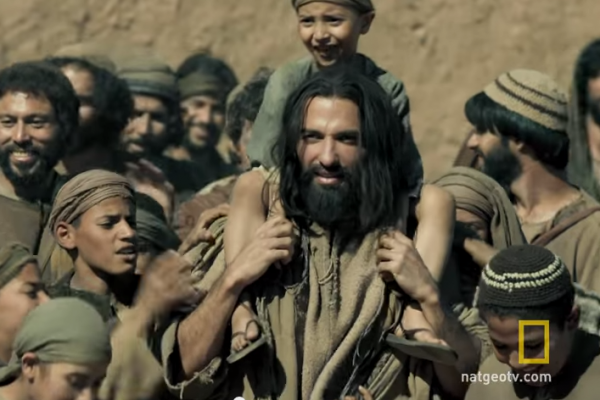In a world surging with anti-Semitism, Islamophobia, and the persecution of Christians, a Muslim is soon to portray Jesus in a film called Killing Jesus. Based on Bill O’Reilly and Martin Dugard’s bestselling book of the same name, the film seeks to capture the human dynamics and political milieu around the controversial death of Jesus of Nazareth.
Haaz Sleiman, a Lebanese-born American Muslim, was chosen to play the lead as the Jesus character. His selection makes him virtually the first actor of Middle Eastern descent to ever play the role in any mainstream film.
While National Geographic’s attempt at authenticity should be celebrated, the casting of Sleiman has, instead, stirred quite the controversy.
Imagine — in a context where religious tribalism is growing fiercer, a Muslim is embodying the role of a Palestinian Jew and central figure to Christianity. Is this a heretical impossibility or is this a picture of something beautiful?
On Tuesday, I sat down with Haaz to explore the uniqueness of this moment in his career and how the experience of embodying the life and teachings of Jesus has left him forever changed.
What immediately stood out is the grace with which he is handling the criticism from Jews, Christians, and Muslims alike. Rather than worrying about the controversy, Sleiman feels lucky to have had the opportunity. For him, it was the “ultimate experience as an actor” as he had been “heavily shaped” by Jesus during his childhood. Growing up in a Muslim home, he was taught to revere Jesus as the prophet equal to Mohammed who had come to reveal the beauty and potential of humanity. To play this role gave him a “once-in-a-lifetime opportunity” to “become the character that he truly believes in.”
In the aftermath of the filming, the fusion of Islam, Judaism, and Christianity in his portrayal of Jesus has created space for necessary dialogue. It is within these bridge-building moments that Sleiman is discovering just how much the character he embodied is still shaping him. When he finds himself in tense dialogue, Jesus’ teachings to “love neighbor” and to “love enemy” are helping him view others through “lenses not so darkened by judgment.”
Reflecting further on these central teachings, Sleiman names Jesus’ “magnificence” as His ability to make simple what humans make so complex. This magnificent simplicity of Jesus has caused Sleiman to commit every day of his life to living with the “limitless love” of the Jesus he portrayed. The character truly formed the actor.
Our interview quickly moved from a dialogue on the film to a riveting conversation about the Jesus that Muslims revere and that Christians follow. Rather than highlighting differences, we were drawn into an exploration of a world where Muslims, Jews, and Christians learn to walk our common ground. We imagined what would happen if we all embraced the teachings of Jesus to love God, love neighbor, and love enemy. You can read highlights from the interview here.
The two of us, one a Christian and the other a Muslim, left the conversation sharing one conclusion: No matter who you are, where you’re from, or what your background is, it is impossible to embody the life and teachings of Jesus and remain unchanged.
Killing Jesus airs on the National Geographic Channel on Sunday, March 29 at 8/7C. WATCH the trailerhere.
Jer Swigart writes for the Global Immersion Project, where this post originally appeared. Courtesy Global Immersion Project.
Got something to say about what you're reading? We value your feedback!
